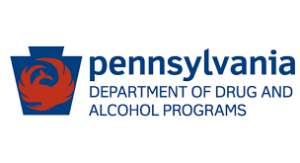PA Health Policy Update for February 24
The following is an update of selected state health policy developments in Pennsylvania from February 18-24. (Some of the language used below is taken directly from state documents.)
General Assembly
- The state House convened for a special session this week and approved two measures addressing the statute of limitations for victims of childhood sexual abuse – House Bill 1 and House Bill 2. Both pieces of legislation provide a two-year window for victims of childhood sexual abuse to file civil claims.
- The state House and Senate will meet for regular session next week – Monday, February 27 through Wednesday, March 1.
- The Senate Banking & Insurance Committee is scheduled to meet on Tuesday, February 28 to consider Senate Bill 8, which requires insurers to cover costs associated with genetic counseling and genetic testing for the BRCA1 and BRCA2 gene mutation if a person is diagnosed with breast or ovarian cancer or has a family history of breast or ovarian cancer. It also requires insurers to cover all costs associated with a supplemental breast screening by MRI or ultrasound for women at increased risk of breast cancer pursuant to Act 52 of 2020.
 Department of Human Services
Department of Human Services
- The Department of Human Services (DHS) has updated its calendar for the delivery of Remittance Advice (RA) notices, electronic fund transfers, and mailing reimbursement checks into early April. Find the updated calendar here.
- DHS has issued a Medical Assistance Bulletin advising providers that it will begin covering shadow nursing for private duty/shift nursing services provided to Medical Assistance beneficiaries under 21 years of age effective with dates of service on and after January 1, 2023. The bulletin includes a procedure code and rate information. Find the bulletin here.
- DHS has released its physical health managed care program enrollment report for January.
Department of Drug and Alcohol Programs
The Department of Drug and Alcohol Programs has sent a notice to stakeholders explaining that with adoption of the federal Consolidated Appropriations Act of 2023, Congress has eliminated the “DATA-Waiver Program.” For DEA registrants, this means that DATA-Waiver registration is no longer required to treat patients with buprenorphine for opioid use disorder; all prescriptions for buprenorphine only require a standard DEA registration number; there are no longer any limits or patient caps on the number of patients a prescriber may treat for opioid use disorder with buprenorphine; and in Pennsylvania, no current state laws or regulations prohibit practitioners from adopting this change. The law also introduced new training requirements for all prescribers that will take effect on June 21. States now await further guidance on these requirements. Go here to see the message the Department of Drug and Alcohol Programs shared with stakeholders.
COVID-19: By the Numbers
- The number of new COVID-19 cases reported daily in Pennsylvania and the number of new daily deaths in the past week declined slightly compared to last week.
- According to the Department of Health, the number of Pennsylvanians hospitalized with COVID-19 and on ventilators held steady over the past week while the number in hospital ICUs rose 17 percent.
- The CDC reports a 13 percent increase in the seven-day daily average of new hospital admissions in Pennsylvania because of COVID-19.
- For the week ending February 22, two Pennsylvania counties experienced a moderate rate of community transmission of COVID-19; 13 counties experienced a substantial rate of community transmission; and the remaining 52 counties experienced a high rate of community transmission – all the same numbers as last week.
Stakeholder Events
DHS – Managed Long-Term Services and Supports Subcommittee Meeting – March 1
The Medical Assistance Advisory Committee’s Managed Long-Term Services and Supports Subcommittee will meet in Harrisburg on Wednesday, March 1 at 10:00. For information on the location of the meeting or how to participate virtually, see this DHS notice.
Pennsylvania Health Care Cost Containment Council – March 2
The members of PHC4 will hold a public meeting on Thursday, March 2 at 10:00. For further information about the location of the meeting and its agenda, see this Pennsylvania Bulletin notice.
Department of Aging – Pennsylvania Long-Term Care Council – March 9
The Department of Aging’s Long-Term Care Council will meet in Harrisburg on Thursday, March 9 at 10:00. For information on the location of the meeting or how to participate virtually, see this Pennsylvania Bulletin notice.
Department of Drug and Alcohol Programs – Adolescent ASAM Criteria – March 9
The Department of Drug and Alcohol Programs will offer a training program for adolescent service providers on two dates: March 9 and May 16, both at 8:30. This training on adolescent ASAM criteria, to be delivered virtually, is designed for participants who already understand the foundational aspects of the ASAM criteria. The purpose of this training is to explore and discuss the adolescent-specific aspects of the ASAM criteria and offer participants a practical focus through lecture, real-world clinical vignettes, and case studies. Continuing education credits are available. Learn more about the program, including requirements for participation and how to join, from this Department of Drug and Alcohol Programs notice. Please note that the March 9 and May 16 sessions will be identical.
DHS – Medical Assistance Advisory Committee – Consumer Subcommittee – March 22
The consumer subcommittee of the Medical Assistance Advisory Committee will meet virtually on Wednesday March 22 at 1:00. Go here to register to participate.
DHS – Medical Assistance Advisory Committee – March 23
The Medical Assistance Advisory Committee will hold its next public meeting virtually on Thursday, March 23 at 10:00. Go here to register to participate.
Department of Drug and Alcohol Programs – Adolescent ASAM Criteria – May 16
The Department of Drug and Alcohol Programs is offering training on adolescent ASAM criteria, to be delivered virtually, for participants who already understand the foundational aspects of the ASAM criteria. The purpose of this training is to explore and discuss the adolescent-specific aspects of the ASAM criteria and offer participants a practical focus through lecture, real-world clinical vignettes, and case studies. The program will be held on May 16 at 8:30. Continuing education credits are available. Learn more about the program, including requirements for participation and how to join, from this Department of Drug and Alcohol Programs notice. Please note that this program is identical to one offered on March 9.
 General Assembly
General Assembly Department of Health
Department of Health Health Care Cost Containment Council (PHC4)
Health Care Cost Containment Council (PHC4) Shapiro-Davis Transition
Shapiro-Davis Transition Centers for Medicare & Medicaid Services
Centers for Medicare & Medicaid Services Department of Drug and Alcohol Programs
Department of Drug and Alcohol Programs Department of Drug and Alcohol Programs
Department of Drug and Alcohol Programs 2022 Election Update
2022 Election Update Stakeholder Events
Stakeholder Events Governor Wolf
Governor Wolf Department of Health
Department of Health General Assembly
General Assembly